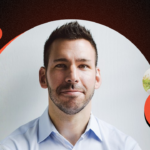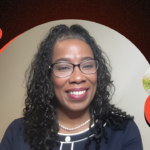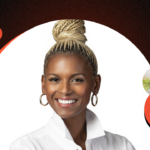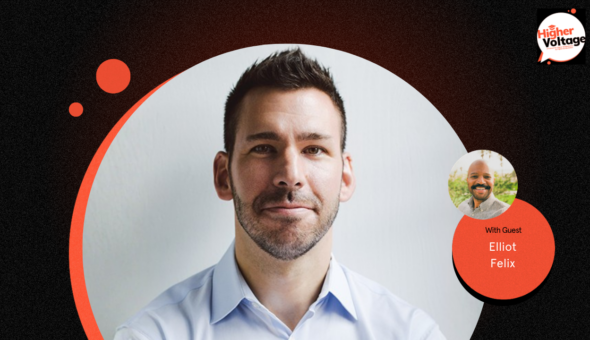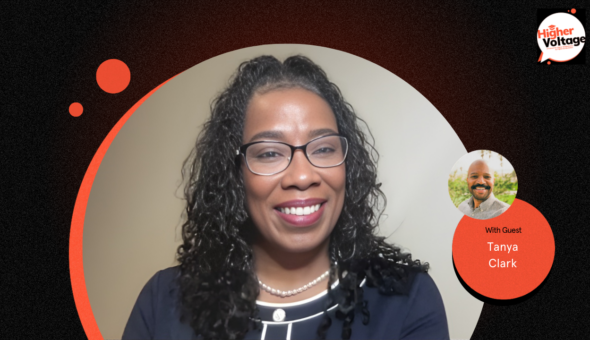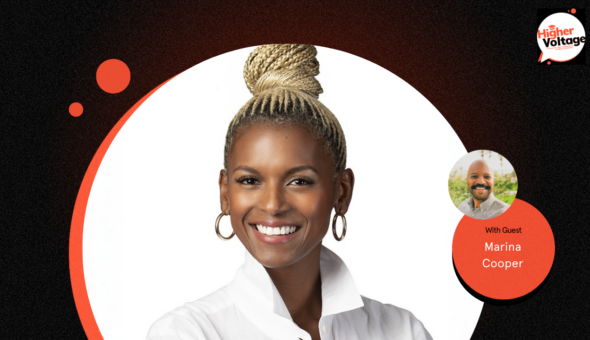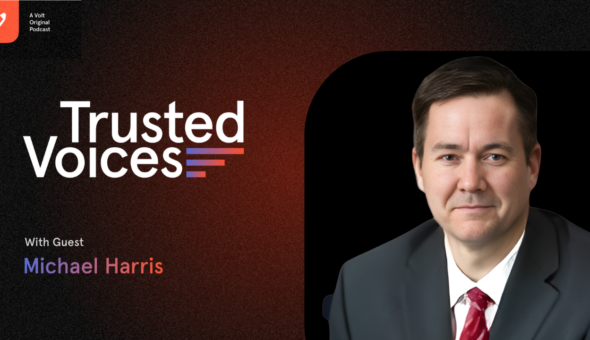Higher Voltage is back with a must-listen conversation. Host Kevin Tyler and Brian Piper, the co-author of “Epic Content Marketing for Higher Education,” unpack how strategic storytelling is reshaping the way universities engage with their communities — sharing real-life successes, common pitfalls and a glimpse into the AI-powered future of content. With Brian’s insights, you’ll learn why building genuine relationships through targeted content is the key to staying relevant in an ever-changing higher ed landscape.
Show Notes
Discussion Points
- “Epic Content Marketing, Second Edition: Break through the Clutter with a Different Story, Get the Most Out of Your Content, and Build a Community in Web3”
- “How to Market a University: Building Value in a Competitive Environment (Higher Ed Leadership Essentials)”
- Content Marketing World 2024
- Trusted Voices Podcast
Read the full transcript here
Kevin Tyler
Hello everyone, welcome back to Higher Voltage. It has been a while since we’ve been together. We took the summer off. I’ve been traveling all around, but I’m happy to be back with our first guest of the new season, Brian Piper has joined me today to talk about his new book, “Epic Content Marketing for Higher Education.” The timing couldn’t be better for a book like this. I’m so pleased to have you join me on Higher Voltage.
Brian, please, tell our listeners a little bit about yourself and why this book is coming out right now.
Brian Piper
Well, thank you so much for having me on. I really appreciate the opportunity. So I am the Director of Content Strategy and Assessment at the University of Rochester, and most of my job focuses on looking at content performance data, trying to figure out what channels are working best for which audiences and what content is working the best as well.
So last year, I co-authored the second edition of “Epic Content Marketing” with Joe Pulizzi, who’s known as the godfather of content marketing. He came out with the first edition, back in 2013. And when I read that book, it changed my entire career path. I was a web developer and I said, I don’t want to be doing website development anymore. And I can market to people without like selling them just by giving them helpful information and by providing answers and helping them figure out solutions to their problems. This is what I want to be doing. So I went right to our marketing department. I was working at a defense contracting company at the time and went to our marketing VP and said, you need to hire me to do your digital marketing because content marketing wasn’t a thing at that time. Did a lot of great work while I was with them, really focusing on audience-first content creation, really looking a lot at SEO and optimizing content that we already had. And that led me into my job at the University of Rochester seven years ago. And since then, I started off in central communications. We weren’t really doing marketing at the institution level at that point. Did a lot of SEO work, a lot of content optimization work. And then just this last October, we hired our first vice president of marketing and communication. So now we’re actually getting into the marketing side.
Kevin Tyler
There you go.
Brian Piper
But last year, I worked with Joe to come out with the second edition of Epic Content Marketing. And the whole time we were working on that and writing it and going through all the use cases and the process, I kept thinking, this is so needed in higher education. And it’s just, I was looking around for examples of it, looking for other institutions that were doing this, and it was difficult to find. And I thought that was particularly surprising because it’s all about storytelling and educating and providing answers and helping people. And I’m like, that’s what we do as institutions. Why are we not marketing this way?
So I just really saw it as a missed opportunity. So as soon as we were done with the second edition of Epic, I started working on this. And I started out by contacting, I think I reached out to 50 different VPs and leaders of marketing across higher ed. I reached out to a bunch of industry leaders, marketing leaders and content marketing influencers and leaders and interviewed all of them and just tried to figure out what was working and what wasn’t and who was doing this already and how could we all learn and better tell the stories of our faculty, staff, students and alumni to help the next generation of faculty, staff, students and alumni. So that’s why I wrote it.
Kevin Tyler
It’s really great and I’m so glad you touched on your approach in writing this book. The format of it takes the quotes from your interviews and plops them right into the page as opposed to kind of like translating them into your voice or opinions or being informed that way. And it really adds another level of like personality to the book that I really appreciate. But they’re all very concise nuggets of really good information around content marketing. And so I think you may have touched on it a little bit, but I’d love for you to go a little bit deeper into why content marketing is so important in higher education from your perspective.
Brian Piper
Yeah, and you know, I got the idea of doing this as interviews from Teresa Flannery. So she wrote “How to Market a University,” which is one of my favorite books that I recommend to people all the time. And she had talked about having these book whisperers basically that she used, you know, and she interviewed and she grew her knowledge base and then kind of used that to write her book without including as many of the quotes.
And so then when I was doing all of these interviews, some of the things that the people said, it was just so perfect and concise. I didn’t wanna try to restate it or try to make it come across as my knowledge. And then, as I was interviewing these people, I kept thinking, one of the questions I asked everybody at the end was, who is doing this? What schools or institutions out there are already doing this well?
And that was a really hard question for a lot of those people to answer, which I thought was indicative of the fact that yes, we do need this book. But then there were some people that started pointing me at different use cases and different institutions that were doing this like really well. And so then I started interviewing those folks also and saw the impact that content marketing was having on their institutions and how it was helping the students. It was just reassuring to me at one level to know that yes, this is a thing that should be done. There are institutions already doing this very well, but there’s a lot of people who I talked to who were just not doing it. Even people knew that it was an opportunity. They knew we could be doing it.
And I mean, one of the things we try to do as institutions is to tell the stories of the different people we have. And a lot of times we do that kind of like as a feature, just touting their wins, but we don’t oftentimes show the struggle or the problems they face or how they addressed those. And I think by figuring out within our marketing, how to answer the questions that people have and how to showcase solutions to problems and create this, not only good storytelling content, but really valuable, helpful, useful content for a targeted audience. That’s what content marketing is. It’s creating valuable, useful content for a very specific audience that eventually is going to have them take some action. That’s going to help us reach our strategic goals. And that might just be reading more content, might be signing up for a campus tour. It might be just feeling a stronger attachment to our community and to our institution so that increases our brand awareness and our reputation. But, I think, being focused on why we’re creating content and not just doing random acts of content and just throwing things out there because someone told us we had to write an article about this person or about this project that was going on without really thinking about why are we writing this, who are we writing this for, and what can we gain out of this? How is this going to help us reach our goals?
Kevin Tyler
I couldn’t agree with you more. You feature some of my absolute favorite higher education marketing thinkers. People have such mad respect for Tim Jones, Teresa Valerio Parrot — who’s got a podcast on this network as well, Trusted Voices — Angela Pollock, Jenny Li Fowler. I mean, there are some heavy-brained people featured in this book and I appreciate the breadth of the people you’ve talked to who do different things at their institutions or for their agencies, whatever it is, who bring this freshness to the thinking of marketing. And I think that, to me, from my perspective, the importance of this book and the importance of work-like content marketing is where differentiation lies. The offer of a higher education doesn’t really look different from place to place. And that’s a conversation that’s been had for eons. But when we start to split the hairs and what makes one institution better than the other, it is the stories that we are telling to represent the institution. And so, the idea of content marketing finally becoming a thing that people are implementing, not even talking about, implementing and at a more aggressive pace. It is really exciting to me. And I’m hopeful that we get folks placed in institutions who value content marketing so that some of those stories can kind of rise to the surface. You mentioned in your previous response that there were some institutions that you heard of and that you spoke to that were doing content marketing really well. Can you give us one or two of those examples and what they’re doing, what that impact looks like?
Brian Piper
Yeah, so we feature, you know, one whole chapter was just case studies and there were scattered case studies or pockets within the book. But some of the ones that we really featured Purdue has just really transformed their marketing team into… They used to be kind of an order taking team as many central marketing teams are, right? They just do what people ask them to do. And so they pretty quickly decided that they were not going to be order takers anymore. And they decided to start saying no, which is difficult for a lot of marketing teams. They’ve kind of established a workflow or a process where they just do what they’re asked to do. So they really became much more strategic, high level thinkers about why they were creating this content and intentionally what they were doing. And they really leaned into storytelling.
They really leaned into the emotional aspect of showcasing the people that they had within their institution. And it’s really paid off for them. They’ve won all sorts of awards. I was at Content Marketing World last year, or year before last, when they won the award for best content marketer of the year because of video content that they had created and the work that they had done to really build this entire brand and build up instead of doing order taking, now they are leading by example. And as they create new resources, they’re providing those resources to anyone else within the institution that wants to do similar type of work, but they are not taking on that work themselves. And they recently actually changed their entire marketing team to being a brand production studio is what they are. So now they are instead of just doing marketing, they are now just focused on increasing the brand awareness and reputation of the institution. So that was one of my favorite case studies. And everyone that I talked to there was enthusiastic and happy and excited to be on that team and be doing the work that they were doing. So I thought that was a great example.
And then what Harvard has done with their homepage takeovers. Basically, every month or every couple of months, they’re changing their homepage because they did this comprehensive study of the traffic within kind of all of their different areas of their site. And they noticed that they were getting a ton of traffic on their homepage, but most of it was not from potential students. It was not from target audience. It was just people who were coming to Harvard to see what new news they had or what they were showcasing. So they decided to take that opportunity and really lean into the educational aspect of their brand. And every few months, they change that up for a different, really impactful social topic. So they had like AI in the environment and areas where they are strong as an institution. So they take that homepage and they write up some editorial content around it, but mostly it links out to existing content or areas of focus that they have around their entire digital landscape. As an SEO guy, I love that because you are creating that authority and expertise that Google and other search engines love to see and love to index higher. And so they’ve gotten a lot of value out of that just from a search rankings and traffic experience as well as establishing them as experts within these different areas and showcasing the breadth of their content that might not have otherwise been discovered if they hadn’t kind of captured it all into this central area. So those are two of my favorite case studies that I had in the book.
Electric Kite ad read
Kevin Tyler
I think one of the important things to keep in mind when thinking about content marketing is that this is not just as you call it, which I love the phrase, random acts of content. It’s content and stories that are organized and they’re attached to another tour structure. I love the idea you posit in the book about possibly attaching it to an institution’s strategic plan. I wish, I think it is a brilliant way to go about it.
But you know every now and then you run into people at institutions who are who mean well who are developing random acts of content and I’m wondering, what else does higher ed get wrong when it comes to content marketing?
Brian Piper
I go to a lot of content marketing conferences, content conferences, and one of the things that it’s not just higher ed that does this, every brand does this. Everyone who starts to get into content marketing and was like, that’s something we should do. Yes, let’s do a content marketing campaign. So content marketing is not a campaign. It doesn’t work as a one -off, as a three-month project. It doesn’t work as a flash in the pan, let’s just promote this and throw a bunch of content out. Content marketing is about forming relationships. It’s about building trust. And you can’t do that quickly. So the key to content marketing is figuring out how you can create consistent content over a long period of time that is going to be helpful to whatever audience you’re going after.
It can be a tough sell to leadership to say, if we want to do content marketing, we have to look at an 18 month roadmap before we’re really going to start creating a community and creating a loyal audience that’s going to keep coming back to our content on a regular basis. We’re going to have to figure out how to get consistent with our content. Like, you know, Harvard has done that with their homepage takeover, every like month or every other month, you can expect to see a new feature up there. So you’re going to go back to figure out what that is. University of Miami at Ohio has a podcast and a blog that they started specifically focused on first year students. And it’s hosted by first year students because that’s who they want to hear from. And it addresses all the questions and the fears and the difficulties that they’re going to face when they get to the institution and when they’re making this huge decision and they’re going away from home probably for the first time in their lives.
So it helps relieve those fears. It helps them get an idea of what they can expect. And they’ve grown that audience and built that audience. So they consistently come back there time after time. Siena College, I interviewed Alison Tursio and she was, they have a program that’s enrollment bootcamp where it’s just open up to any high school seniors that wanna come, whether they’re considering going to Siena or not, they can come there and they’ll help them with their applications. They’ll help them figure out the financial aid processes. And so they bring in like thousand students every year who are just looking for help in navigating this very complicated workflow that we’ve created in higher ed. And they don’t expect anything, it’s free, and it’s just a great resource. So thinking about it as a long-term project, thinking about your content as a product, thinking about the value that your content has and not just as something that you throw up to appease somebody.
Kevin Tyler
I think that makes a lot of good sense. And, I think, when thinking about the long term piece, there is opportunity for what best practices look like to evolve, right. You know, think about AI and think about how we consume information, et cetera. How do you think content marketing will be changing in the near future?
Brian Piper
Yeah, so you mentioned AI. You’re going to get me started on that. I think we are going to see an opportunity with our content to become much more personalized, and even within the offerings that we have at the institutional level to really figure out how we can offer very structured solutions to different audiences. So that we can create programs that fit the individual and we can communicate that in a way that they recognize the value that that’s going to have. Four years from now with what’s going on in the AI space, who knows what jobs are still going to be out there. So, I think, we’re going to have to become much more flexible and much more versatile around our programs, our communications, the value that we bring. Just selling knowledge transfer may not be a good long-term solution for higher ed institutions. We may have to think about different ways that we can grow communities, different ways that we can build trusted resources, different ways that we can create ongoing knowledge, thought leadership. And all of that can be done using content marketing.
I have a whole chapter in the book talking about the different challenges that we face in higher ed from enrollment cliff to perception of the value of higher ed to employee retention. And then the next chapter goes through all the different ways that content marketing can help us solve those problems and provide value to all those different audiences and help promote the ways that higher ed is more than just a knowledge transfer. And even in private institutions that have a really high tuition, when you look at all the financial incentives that are given and all the opportunities for scholarships and grants, a lot of times that cost is reduced, but we still need to figure out better ways to provide more value at less cost. And I think, you know, online learning is gonna be huge. We’re gonna have to figure out different ways to offer our curriculums online. We’re gonna have to look at more certification programs. We’re gonna have to look at non-traditional students and figuring out ways to create lifelong learning opportunities. I think we have a lot of opportunity, but I think we have a lot of things to think about and there’s gonna be a lot of change in higher education, which is sometimes difficult for us as a vertical market.
Kevin Tyler
Is it? I hadn’t heard. Changes can be hard. Wow. Breaking news right here. I was kidding. I think that makes a lot of good sense though. Keeping up with the pace of change is going to be very important because if the content that you’re developing isn’t relevant, then it’s not exactly going to be effective content. So keeping up with that pace is going to be super critical. What other types of advice would you give to institutions or marketers who want to be better or maybe even great at content marketing but don’t know where to start?
Brian Piper
Yeah, we always tell people start, start small, start with one place. There are so many channels we can put content on and we have so many different audiences that we’re trying to appease. When I first started working with our new center, writers, our content creators, they would come with a story idea and be like, yes, that’s a great story. We need to tell that story. Who is the audience for that story? And they would say, everyone. Everyone needs to hear this story. I was like, everyone is not a target audience. So think of one audience, your main audience that can potentially take some action from reading your content and some action that will help us reach our goals. So what’s the biggest impact that we can have with one audience? That’s your target audience. So, I think, starting small with one channel and starting with one audience and really focusing on how you can help that audience and what value you can offer them. What problems are they facing and how can you create your content to not talk about you, but to talk about them and to talk about how you can help them solve problems and answer their questions.
Kevin Tyler
I could not agree with you more. And then one of the questions I ask every single person I am joined by on this podcast is what do you think higher education, not just content marketing, but higher ed itself, what will it look like to you in 10 years or what do you hope that it looks like?
Brian Piper
I love this question that my whole last chapter in the book is all about the future of higher ed and higher ed marketing. So I am very bullish on higher ed and the opportunities that we have as higher ed institutions. I think two years is hard to predict with the pace of change that we’re experiencing.
Kevin Tyler
Right.
Brian Piper
I was at an AI conference two weeks ago and someone was saying that, you know, we’re all talking about AI right now. It’s the buzz, but there’s so much going on with AR and VR and robotics that, you know, I think they said that within the next five years, we’re going to have more than a billion autonomous robots, like walking around in, in the world with us. So that changes so much about, I know, right.
Kevin Tyler
That is wild.
Brian Piper
It just changes the entire world, changes the job opportunities, it changes how we learn. You can get knowledge at the tips of your fingers, we already have a lot of it with our phones, but now if it’s integrated into glasses that we’re all wearing, and you don’t have to like remember or learn these things, like in school for years, you can learn it at the moment that you need it.
Kevin Tyler
Right.
Brian Piper
So, I think, higher ed in 10 years is still going to exist. I think it’s going to exist in a very different form. I think we’re gonna have to figure out how to globalize and democratize education. We’re gonna have to figure out how to make the cost more consumable for every different audience. I think we’re very selective right now. I think there’s a lot of issues right now around the fact that we’re kind of perpetuating a lot of socioeconomic barriers in higher education because we are limiting it to certain audiences. So we’re gonna have to figure out how to overcome that. I think higher ed is gonna become much more of an exercise in how to think, in how to develop the soft skills that we all need.
So we’re gonna have to learn leadership. We’re gonna have to learn teamwork. We’re gonna have to learn how to understand the human side of thinking more than just the performance or the knowledge regurgitation side that so much of our learning is focused on now. I don’t know exactly what form it’s gonna take, but I know that there are huge questions and issues that the world faces, that our humanity faces. I think the world’s gonna be fine, but humanity, I think, is facing a lot of crisis and issues. And I think the best place to look at solving those are higher ed institutions where you can bring people together. I think virtually, we’re gonna get into a lot of more virtual spaces where we’re gonna be able to bring in people from all sorts of different cultures and backgrounds and ideas to really get the most impactful solutions and kind of the most diverse and inclusive solutions so that we’re not just thinking about the problems that we face in our little corner. We’re thinking about how that impacts the world, the global environment, global economy. And speaking of economy, I think the AI and robotics impact on jobs is going to be a huge crisis that we’re going to have to figure out.
How do we give people purpose if we don’t have to do all these jobs that we’re doing now, or if we can do them all in a day instead of five days? So it’s gonna be some major shifts, but I think the best place to start thinking about how those shifts can be made at a holistic level is within learning institutions.
Kevin Tyler
Brian Piper, thank you so much for joining me on Higher Voltage today. If you have not picked up a copy of “Epic Content Marketing for Higher Education,” I would highly recommend it. It’s a great read, fast read, and lots of really, really great information in it. And it’s brand new. It came out on September 10.
Brian Piper
That’s right, yeah.
Kevin Tyler
Brand new, hot off the presses. So, Brian, thank you so much for joining me and for your time today and for writing this excellent book and for featuring so many great, great thinkers. I loved it.
Brian Piper
Well, thank you for having me on, Kevin, and thank you for all the epic content that you produce. I love the show, I love all the thought leaders that you talk to.
Kevin Tyler
Thank you very much.

